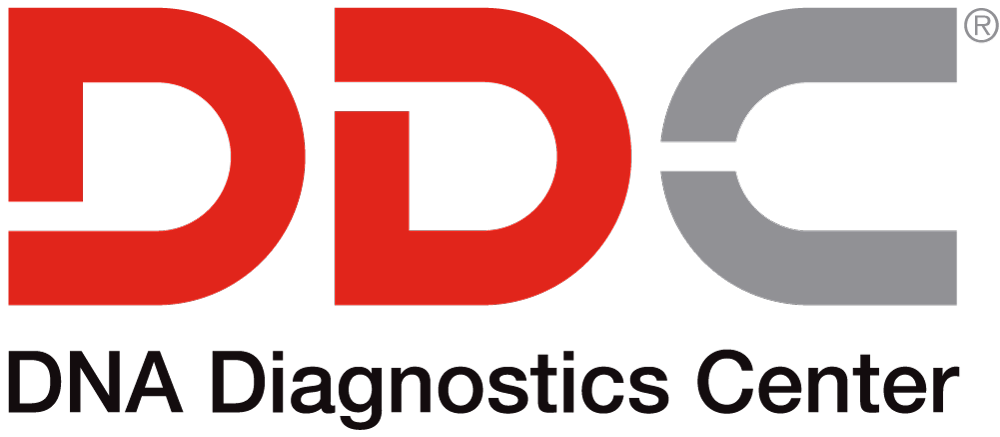JULY 14, 2014
Prenatal Paternity Testing: How Early is Possible?

For some women or couples, establishing paternity at the earliest possible time during the pregnancy is of utmost importance. The reasons behind wanting early testing may be highly personal, they may involve uncertainty over the identity of the biological father, or the concerned parties may want to maximize time for planning and organizing finances, as well as sorting out emotional issues in complex personal relationships.
Today, DDC offers accurate, reliable, and non-invasive prenatal testing as early as the eight week of pregnancy.
Determination of Paternity
Until very recently, the determination of paternity needed to wait for chorionic villus sampling (CVS) or amniocentesis, two procedures that are invasive and create a small risk for miscarriage. Furthermore, because of safety concerns, these procedures are often delayed, making early decision-making more difficult.
Scientists have discovered in recent years that fetal DNA found naturally in the mother’s blood can be used for DNA testing, including the reliable determination of paternity (see the New England Journal of Medicine, May 3, 2012). DNA Diagnostics Center has been among the first to adopt advanced technologies for prenatal testing, including the testing of the baby’s DNA found in the mother’s blood.
All that is needed from the expectant mother is a blood sample, for early paternity testing. A blood sample is also taken from one or more males determined to be a prospective father, and results are usually provided within 5-7 business days after receiving samples.
In rape cases, it’s critical to determine if the father is the perpetrator or whether he is the woman’s partner of choice. That can weigh on a woman who considers pregnancy termination as an option.
History of DNA Testing
DNA testing has become the gold standard for determining the paternity of a child. DNA testing can establish paternity with a level of accuracy and reliability never before possible. In the past, the establishment of paternity was based on largely circumstantial evidence, personal testimony, and tests of blood type. DNA testing exceeds these outdated approaches in accuracy many times over.
Because there’s a push and new science toward tests methods in earlier weeks of pregnancy, legislators are now considering the possibility of using these test methods to enable women to demand child support even during pregnancy. Currently, child support claims can only be made after birth, leaving the pregnant mother with the burden of handling all expenses associated with pregnancy and delivery.
Reasons for Early DNA Testing
DNA paternity testing, even at an early stage of pregnancy, can have many purposes. In some states, when a couple is unmarried, the law may require a paternity test to establish paternity before a father can be listed on a child’s birth certificate as the father. This may have many implications, as establishing parenthood can affect child custody determinations and legal support obligations, as well as custody and visitation rights. Knowing the paternity of the child early in pregnancy provides time for taking care of these obligations beforehand, and not during the busy and emotional times surrounding birth.
Establishing paternity early in pregnancy can alleviate many other concerns and stresses that may arise after the birth. While some genetic abnormalities may be tested for directly with other prenatal DNA tests, the general health of a baby also determined by the health of the parents, so establishing the biological father and understanding his overall health can be beneficial to the early care of a newborn.
DNA Diagnostics Center (DDC) is the largest and most trusted DNA testing service in the world and provides rapid and reliable paternity testing at convenient locations throughout the United States. DDC provides DNA paternity testing for all purposes, and DDC is fast and reliable and meets all local and international standards for accuracy and legal admissibility. DDC has also been a leader in the adoption and development of new technologies for early paternity testing using noninvasive blood sampling, making the early paternity test easy and convenient.
About DNA Diagnostics Center (DDC)
DNA Diagnostic Center is the world leader in paternity and relationship testing. We serve healthcare professionals, government agencies, and individuals around the world to determine family relationships with trusted accuracy.
More Questions? Don’t hesitate to call us: we’re here to help!
CALL NOW




